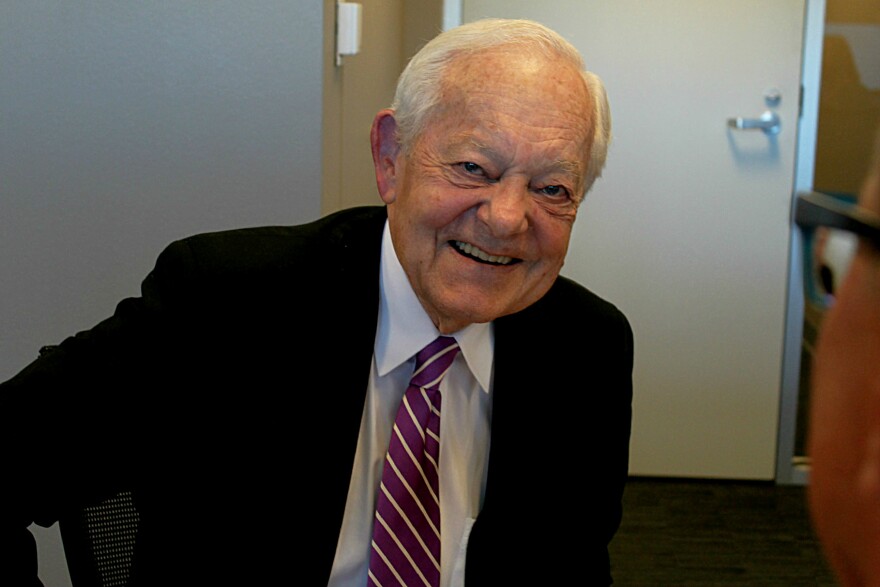Stunned. That's how Bob Schieffer, the retired CBS newsman with deep Texas roots, reacted on Election Night. He, like much of America, didn't think Donald Trump had much of a chance against Hillary Clinton. He, like much of America, was wrong.
In a Friday Conversation with KERA at the TCU College of Communication that bears his name, Schieffer talks about the plight (and promise) of journalists during the Trump era. He compares this moment in America to 1968, when the Democratic National Convention was rocked by violence.
And he remembers his first job at the Fort Worth Star-Telegram, when Marguerite Oswald called the paper, looking for a ride. The date was Nov. 22, 1963 — and he agreed to drive the mother of Lee Harvey Oswald to Dallas, where her son was being held for the murder of John F. Kennedy.
Interview Highlights: Bob Schieffer on...
...the election and its aftermath: "This was not only the worst campaign, but also the weirdest, the strangest ... and it goes on! So now we're into this thing where Donald Trump wins the election, OK? And then somebody else says 'I want a recount,' and he starts berating them. If this were a baseball game, he slides into home plate and the umpire says, 'Safe!' And he jumps up and starts arguing and says, 'I'm even safer!'"
...what he tells young would-be journalists: "I tell them, 'We still need you.' I tell them, 'You may not work at a newspaper, like where I started out [at the Fort Worth Star-Telegram], but there will always be a need for journalists — for the simple reason that you can't have the kind of democracy that we have unless citizens have independently gathered information that they can compare to the government's version of events."
...on complaints about how the media covered the campaign: "We're always going to get the blame. Quite frankly, when Donald Trump said it was all our fault there toward the end of the campaign, I felt very good about that. I felt very good about that. I felt, "Well, we're finally back in our traditional place: It's all our fault.' ... And what we came to understand is that his core supporters — and maybe we didn't understand this in the beginning — they took him seriously but not literally; we took him literally, but sometimes not seriously."
...on how journalists should treat Trump now: "We have to give him a chance. We can't just make up our minds that he's gonna fail and everything he's gonna do is wrong. He won the election...But, by the same token, I think we have to keep asking questions. We have to question when things do not seem right. I think we just keep acting like reporters. That's what reporters do: You ask people questions."
...on the state of the body politic: "I think our electoral system has collapsed. I think it's in worse shape than our roads and bridges. The system has become so odious, the process of running for office so overwhelmed by money, that more and more we're seeing serious, good people turning away from the process."
...on how he met Marguerite Oswald in 1963: "I was on the city desk at the Star-Telegram on that awful day, and the phone rang, and a woman said, 'Is there anyone there who could give me a ride to Dallas?' And I was about to hang up the phone. I said, 'Lady, y'know we don't run a taxi here, and besides, the president's been shot.' Whereupon she said, 'Yes, I heard that on the radio. I think my son is the one they've arrested.'"







